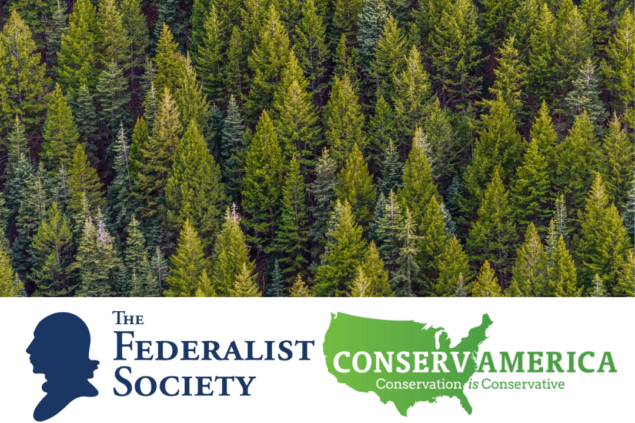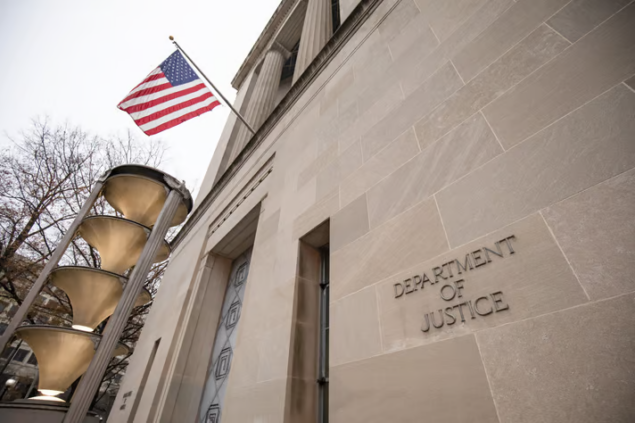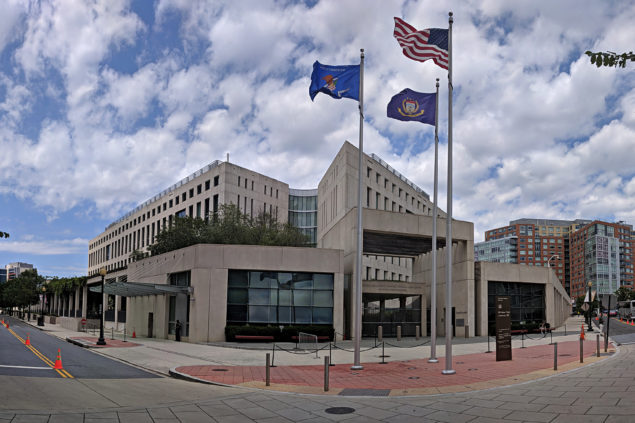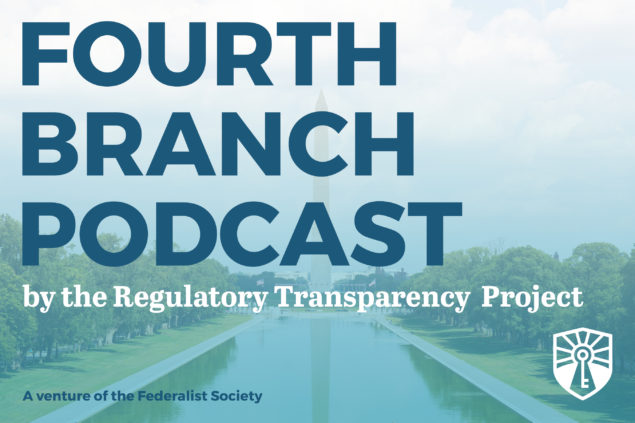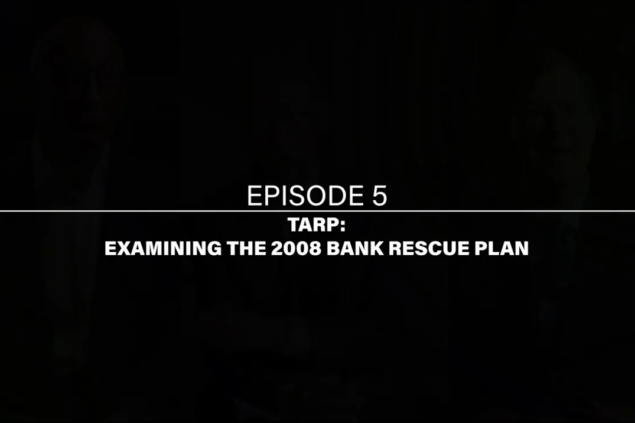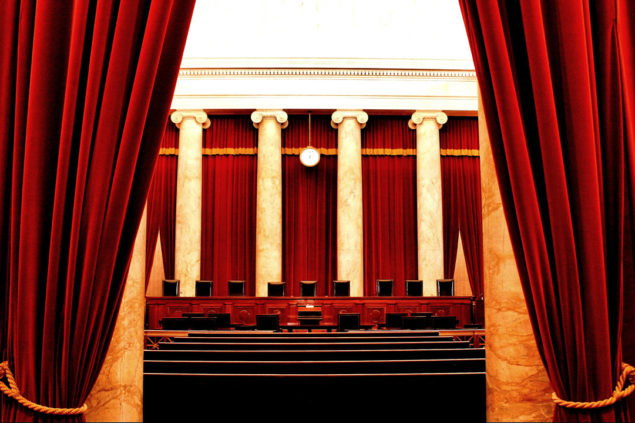Enforcement & Agency Coercion
Topics

Beyond official rules and regulations, federal agencies sometimes exert influence through unofficial administrative tools. Wielded without the ordinary checks and balances of official actions that lawmakers put in place, these powers can be used to pressure individuals and companies to surrender their rights without due process. What are the real-world examples of agencies using coercive power to affect companies, employees, and consumers and how can these practices be avoided in the future?
Improper Third-Party Payments in U.S. Government Litigation Settlements
In this paper, the authors lay out how the United States government negotiated settlements in which settling defendants were forced to pay “donations” to third parties not involved in the cases. The authors go on to argue that this practice – halted in 2017 – was unconstitutional and must remain permanently proscribed.
Read this paperRegulating in the Shadows: How Agencies Achieve Indirectly that Which they have No Authority to Achieve Directly
When is it appropriate for a government agency to use its powers and force citizens to give up legal rights in order to achieve the agency’s goals? When does this power become overly coercive? The authors of this paper delve into these important questions.
Read this paperCourthouse Steps Oral Argument: Corner Post, Inc. v. Board of Governors of the Federal Reserve System
On February 20, 2024, the U.S. Supreme Court will hear oral argument in Corner Post, Inc. v. Board of Governors of…
Listen to this podcastLoper Bright and the Next Steps for Chevron Deference at the Supreme Court
This Term, the Supreme Court will hear Loper Bright Enterprises v. Raimondo—a case concerning judicial deference to agency interpretations of ambiguous…
Listen to this podcastLitigation Update: Loper Bright Enterprises v. Raimondo
For the past thirty years, the Magnuson-Stevens Act (MSA) has given the National Marine Fisheries Service (NMFS), an arm of…
Listen to this podcastDeep Dive Episode 272 – Environmental Enforcement: Policies, Priorities, and the Rule of Law
Our Nation’s environmental laws and regulations are designed to foster the responsible use of natural resources while ensuring air, water,…
Listen to this podcastDeep Dive Episode 226 – Due Process Protections in Agency Enforcement Actions
Steven Bradbury, Sheng Li, and Beth Williams provided an update on Polyweave Packaging v. Buttigieg and discussed the case’s implications for administrative rulemaking and due process.
Listen to this podcastDeep Dive Episode 222 – The Return of Supplemental Environmental Projects
Three executive branch veterans with a range of views on the issue joined us for a virtual discussion on the return of SEPs.
Listen to this podcastDeep Dive Episode 200 – Corporate Social Responsibility, Investment Strategy, and Liability Risks
A distinguished panel joins us to discuss a new paper that examines the legal implications of the rise of “ESG” investing.
Listen to this podcastDeep Dive Episode 196 – Brace Yourself: Discussing The ATF’s Rulemaking On Forearm Stabilizing
An expert panel debates a proposed rule that could subject almost all firearms with forearm stabilizing braces to the National Firearms Act of 1934.
Listen to this podcastDeep Dive Episode 172 – Third-Party Payments in Government Litigation Settlements
Experts debate whether third-party payments in government litigation settlements will – and should – be utilized by the new administration.
Listen to this podcastDeep Dive Episode 129 – Environmental Citizen Suits and SEPs: Do Constitutional and Nondelegation Concerns Outweigh Environmental Benefits?
Are Supplemental Environmental Projects–citizen suits filed alongside the government’s environmental enforcement actions–an unconstitutional infringement on a core executive function?
Listen to this podcastDeep Dive Episode 101 – Litigation Update: Neora v. FTC
Neora Co-CEO Deborah Heisz and lead litigation counsel Ed Burbach of Foley & Lardner join us to describe their last four years of interactions with the FTC and the ultimate “fencing in” proposal that lead them to file suit.
Listen to this podcastExplainer Episode 4 – Civil Rights and Vanity Plates
A USC professor was barred by the California DMV from putting a soccer slogan on his vanity plate; were his free speech rights violated?
Listen to this podcastDeep Dive Episode 59 – Cedar Point Nursery v. Shiroma
A recent Ninth Circuit decision held that a California regulation allowing labor organizers to spend time on an employer’s property for the purpose of soliciting union membership did not count as a ‘physical taking’ under the 5th Amendment. Wen Fa and Bethany Berger discuss the implications of this decision.
Listen to this podcastDeep Dive Episode 54 – Department of Interior Considers Rulemaking on the Right to Use Eagle Feathers in Religious Exercise
It is currently a federal crime, under the Bald and Golden Eagle Protection Act, for many Native Americans to possess eagle feathers for religious use. In the 53rd episode of the Fourth Branch podcast series, Joe Davis addressed the proposed rulemaking and its relationship to evolving First Amendment jurisprudence.
Listen to this podcastDeep Dive Episode 23 – En Banc D.C. Circuit Upholds CFPB Constitutionality
Amb. C. Boyden Gray and Adam Gustafson (Boyden Gray & Associates) discuss the recent en banc decision in PHH v. CFPB, which considers the constitutionality of the CFPB, and whether the case is likely to reach the Supreme Court of the United States.
Listen to this podcastDeep Dive Episode 11 – Heimlich Maneuver on Operation Choke Point?
Listen to Pete Patterson (Cooper & Kirk) discuss Operation Choke Point, the recent Department of Justice letter denouncing its participation in this initiative, and litigation against federal agencies who have participated in it.
Listen to this podcastDeep Dive Episode 8 – Cardiac Arrest: A Cautionary Tale
Listen to Howard Root’s story of going from the CEO of Vascular Solutions, Inc. to defending himself and his company in court.
Listen to this podcastDeep Dive Episode 3 – SEC Increased Use of Administrative Proceedings and “The $2,200 Man”
Michael Kelly (Hogan Lovells) and Eric Wanger (Wanger Investment Management) discuss the SEC’s use of administrative proceedings in this episode of Fourth Branch.
Listen to this podcastRegulation and Red Tape: TARP: Examining the 2008 Bank Rescue Plan
The success of TARP is still debated today by experts on both sides of the issue. Did TARP save the economy, or was it an excessive government intervention?
Navigating the Capital Adequacy Rule: Legal and Policy Perspectives
The Regulatory Transparency Project invites you to join us for a luncheon and panel discussion at the Mayflower Hotel on…
Watch this videoCourthouse Steps Oral Argument: Corner Post, Inc. v. Board of Governors of the Federal Reserve System
On February 20, 2024, the U.S. Supreme Court will hear oral argument in Corner Post, Inc. v. Board of Governors of…
Watch this videoCongress and the Future of Agency Authority: A Discussion of Three Major Administrative Law Cases and Their Implications for Congress
The Federalist Society’s Capitol Hill Chapter and the Regulatory Transparency Project invite you to join them for a luncheon at…
Watch this videoRegulation and Red Tape: Tax Inversions: Unpacking the Pfizer Case
In episode four of the “Regulation and Red Tape ” series, experts provide an exposition of corporate tax inversions, spotlighting Pfizer’s case, and raise pivotal questions concerning the balance of powers when time-sensitive policy matters are at stake.
Watch this video[Film Screening & Discussion] Sackett v. EPA: A Tale of Wetland Regulations
Join the Federalist Society and the American Conservation Coalition for a film screening and discussion of Sackett v. EPA: A…
Watch this videoLoper Bright and the Next Steps for Chevron Deference at the Supreme Court
This Term, the Supreme Court will hear Loper Bright Enterprises v. Raimondo—a case concerning judicial deference to agency interpretations of ambiguous…
Watch this videoLitigation Update: Loper Bright Enterprises v. Raimondo
For the past thirty years, the Magnuson-Stevens Act (MSA) has given the National Marine Fisheries Service (NMFS), an arm of…
Watch this videoWong v. NYCERS and ESG Action at the State and Local Level: A Debate on the Right
In Wayne Wong et. al. v. New York City Employees’ Retirement System et. al., four current and former New York City…
Watch this videoRegulation and Red Tape: Boucher v. USDA: Navigating the Swampbuster Provisions
Have you ever received a notice from the government that you violated a rule that you didn’t know about?
In the 1990’s, the Boucher family removed nine trees from their property as an attempt to mitigate the buildup of trash and dumping on their land. This action triggered a United States Department of Agriculture (USDA) investigation suspecting environmental damage. Consequently, the Bouchers lost eligibility for USDA benefits, including “Swampbuster” provisions. In Boucher vs. USDA, the government grapples with balancing natural resource protection and individual liberties. This case underscores the long and painstaking nature of government processes, emphasizing the time and diligence often required for justice and good governance.
In the third episode of “Regulation and Red Tape,” experts highlight the broader implications of Boucher vs. USDA and consider the balance between regulatory enforcement and individual rights.
Watch this videoRegulation and Red Tape: Sackett v. EPA: A Tale of Wetland Regulations
At what point can Americans go to court to defend themselves against agency enforcement action?
This crucial question arose for the Sackett family when they embarked on the initial stages of constructing their home near Priest Lake, Idaho. EPA agents arrived on their property and asserted that it was a federally protected wetland. The EPA subsequently issued a compliance order that would subject the Sacketts to a fine of $37,500 a day. What followed was years of legal battles between the Sackett family and the EPA, culminating in two pivotal Supreme Court decisions.
In the second episode of the “Regulation and Red Tape” series, experts delve into the story of the Sackett family, their experience with the EPA, and the due process questions raised by the story.
Watch this videoRegulation and Red Tape: Mergers, Monopolies, and the FTC
Since the 19th century, the United States government has intervened to combat the growth of monopolies in our economy. The…
Watch this videoOfficial Trailer: The Regulation and Red Tape Series
In this new video series from the Regulatory Transparency Project, leading legal experts will debate some of the most controversial regulatory issues in America today. Moderated by the Hon. Paul J. Ray, “Regulation and Red Tape” will tell true stories of how federal regulatory actions impact the lives of ordinary Americans and the economy they rely on. In watching this series, you will have the opportunity to learn more about how the regulatory process functions, consider how and when regulatory action is necessary, and evaluate the trade-offs involved when the regulatory state acts.
Watch this videoEnvironmental Enforcement: Policies, Priorities, and the Rule of Law
Our Nation’s environmental laws and regulations are designed to foster the responsible use of natural resources while ensuring air, water,…
Watch this videoEnvironmental Enforcement Keynote Address by Senator Dan Sullivan
Our Nation’s environmental laws and regulations are designed to foster the responsible use of natural resources while ensuring air, water,…
Watch this videoEnvironmental Enforcement: Policies, Priorities, and the Rule of Law
Our Nation’s environmental laws and regulations are designed to foster the responsible use of natural resources while ensuring air, water,…
Watch this videoDue Process Protections in Agency Enforcement Actions
Steven Bradbury, Sheng Li, and Beth Williams provided an update on Polyweave Packaging v. Buttigieg and discussed the case’s implications for administrative rulemaking and due process.
Watch this videoThe Return of Supplemental Environmental Projects
Three executive branch veterans with a range of views on the issue joined us for a virtual discussion on the return of SEPs.
Watch this videoShould Regulators Mandate ESG Practices and Disclosures?
Trent McCotter examines Environmental, Social, and Governance standards and how they are, and should be, utilized by regulators.
Watch this videoCorporate Social Responsibility, Investment Strategy, and Liability Risks
A distinguished panel joins us to discuss a new paper that examines the legal implications of the rise of “ESG” investing.
Watch this videoBrace Yourself: Discussing The ATF’s Rulemaking On Forearm Stabilizing Braces
An expert panel debates a proposed rule that could subject almost all firearms with forearm stabilizing braces to the National Firearms Act of 1934.
Watch this videoThird-Party Payments in Government Litigation Settlements
Experts debate whether third-party payments in government litigation settlements will – and should – be utilized by the new administration
Watch this videoAre Fuel Economy Standards Useful in Lowering Carbon Pollution?
Are fuel economy regulations the best tool to reduce pollution? How do they affect consumer behavior, and do they have hidden costs?
Watch this videoHow Does the FDA Regulate Hand Sanitizer?
Due to the COVID-19 pandemic, hand sanitizer has been in high demand. The FDA has stringent regulations about the ingredients for hand sanitizer. This guidance was relaxed somewhat to allow more production from a variety of alcohol industries, such as fuel alcohol manufacturers. After these industries invested time and money preparing to produce hand sanitizer, the FDA revoked the initial guidance and dictated that all hand sanitizer must comply with the usual standards. Are the actions of the FDA justified out of a concern for safety, or should some regulations be re-evaluated in times of emergency?
T. Elliot Gaiser is an Associate at Boyden Gray & Associates PLLC.
Watch this videoObscuring the SEC’s climate disclosure rule may invite a host of legal problems
The U.S. Securities and Exchange Commission’s (SEC) pending climate disclosure rule has been delayed yet again. The climate disclosure rule will require publicly traded companies to quantify and disclose how climate change risk factors impact their operations and financial health.
Read this articleSCOTUS Strikes Down Structure of CFPB’s Director Position
John Shu
Today, in Seila Law, LLC v. Consumer Financial Protection Bureau, the Supreme Court struck down the CFPB’s leadership structure of a single director with a five-year term, removable only for inefficiency, neglect, or malfeasance, because it violates the separation of powers.
Read this articleIt Shouldn’t Be Illegal to Wear a T-shirt
Wen Fa
It shouldn’t be illegal to wear a t-shirt. Yet several states, including California, Colorado, and Tennessee, have established buffer zones in which political expression is forbidden when it matters the most. On Election Day, voters in these states are forbidden from wearing t-shirts or buttons that ostensibly express political messages. In some states, Americans are even prohibited from displaying political yard signs on their own property if they happen to reside too close to a school or a church that’s being used as a polling place.
Read this articleSpeech Police at the DMV: Regulation and Arbitrary Rule
Wen Fa
Vague laws invite arbitrary power. Laws that require regulators to censor speech they find offensive, for example, give them free rein to make decisions that are arbitrary, biased, and unjust.
Read this article





